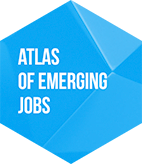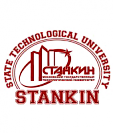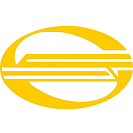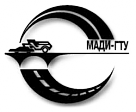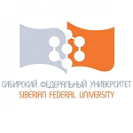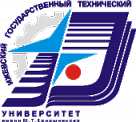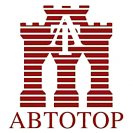Road transport
People travel more and more every year, enhancing the role of the transport industry. We travel short and long distances more frequently and impose more stringent requirements on the speed, comfort and cost efficiency of our journeys. In Russia, road transport has traditionally ensured the unity of our immense country, although there has not been much change in the industry in the past decade. Nevertheless, global competition will force Russia to adopt new methods of road construction and transport management.
Intelligent systems are becoming an essential part of transport infrastructure, both in terms of traffic management and vehicle control. Computers are taking over logistics. Unmanned vehicles will soon appear on the roads, safer and more predictable than traditional ones. According to Google estimates, they will bring about a 90% reduction in the number of road accidents, fuel expenses and overall traffic volume, as well as allow the driver to read a book or watch a movie instead of having to watch the road all the time.
Materials and surfaces are becoming intelligent, along with the hardware: adaptive road surfaces (equipped with sensors and solar panels), lightweight heavy-duty structures and high-tech lining for vehicles and carriages are already in use. Smart roads will replace map-making services by directly transmitting information about the traffic situation ahead (jams, ice, accidents, etc.) to drivers. This will enable more effective route planning and timely decision making. It is an ideal solution, taking into account the anticipated proliferation of unmanned vehicles.
The state of Virginia (USA) already has its own Virginia Smart Road, equipped with a lighting control and weather monitoring system, sensors tracking humidity, temperature, vibration and weight of cars passing by. The length of the experimental section is just 3.5 km, but there are plans to extend it to 9.2 km.
Movement speed is increasing, especially in railway transportation, which allows it to compete with aviation at short distances. The fastest train in the world today is the Japanese JR Maglev magnetic levitation train that can cover a distance of 581 km in an hour. The innovative train is undergoing testing on an experimental 18 km section, which will become part of a high-speed line from Tokyo to Osaka in the future. There are also various alternative projects and ideas for the transport industry. Russia, for example, is working on a string transport project, a transportation system where light carriages will move on thin “string” rails stretched between supports. Trains in the system will be able to move at speeds of up to 500 km/h. For example, a journey from Moscow to Nizhny Novgorod will only take an hour, and a trip from Moscow to Saint Petersburg will last only an hour and a half. In turn, entrepreneur Ilon Mask, who founded the first privately owned space company SpaceX, is planning to build a “hyperloop”, a passenger transportation system where people would travel in small capsules inside a low pressure pipeline. According to his estimates, the average speed of a capsule in the system will exceed 900 km/h.
Professions
Smart management system architect
Develops software for unmanned vehicles and traffic management systems; controls smart management systems. Various solutions exist today to monitor complex shipments, though shipments are managed by people. The future will require automated traffic management systems.
Trends
Professional skills and abilities
Transportation network safety engineer
Professional analyzing and monitoring information, environmental and technological threats to transportation networks. Unlike traffic safety experts, these engineers analyze and prevent problems connected with the functioning of whole transportation networks. With the increasing speed of data transmission, demand is growing for faster movement and higher speed of transportation, which means more stringent requirements for network infrastructure and safety.
Trends
Smart road builder
Professional selecting and installing adaptive road surfaces, marking and road signs with radio frequency identification, surveillance systems, and road condition sensors.
Trends
Professional skills and abilities
Designer of composite structures for vehicles
Specialist who designs structures (frame, lining, parts) made of composite materials with a preset weight, durability, wear resistance, etc. Composite materials are already used in different types of transport, while experts are actively looking for new applications. In particular, in autumn of 2014, the Composites Applications in Industry: Rail Sector Opportunities conference was held in Great Britain.
Trends
Professional skills and abilities
High-speed railway designer
Professional that designs tracks, junctions and stations for high-speed railway systems, taking into account regional and climatic specifics. Specialists of this type are already being trained in western countries. In particular, Michigan Technological University offers courses in this field.
Trends
Professional skills and abilities
Intermodal transport technician
Services technologically heterogeneous transportation structures, intermodal cargo and passenger hubs, infrastructure and station facilities.
Trends
Professional skills and abilities
Intermodal hub designer
Designs intermodal hubs (systems for changing between modes of transportation), calculates their cargo and passenger capacity, wear resistance, and evaluates their growth potential. Such specialists already exist in Russia as well as in the West, however, the increasing load on the transport infrastructure and growth of passenger and cargo traffic will boost demand for them significantly in the future.
Trends
Professional skills and abilities
Cross-logistics operator
Professional with a competence in selecting the best methods of cargo and passenger delivery using different modes of transportation; control and adjustment of traffic throughout a multimodal network; monitoring of the passability of transportation hubs; redistribution of traffic flows in transportation networks.
